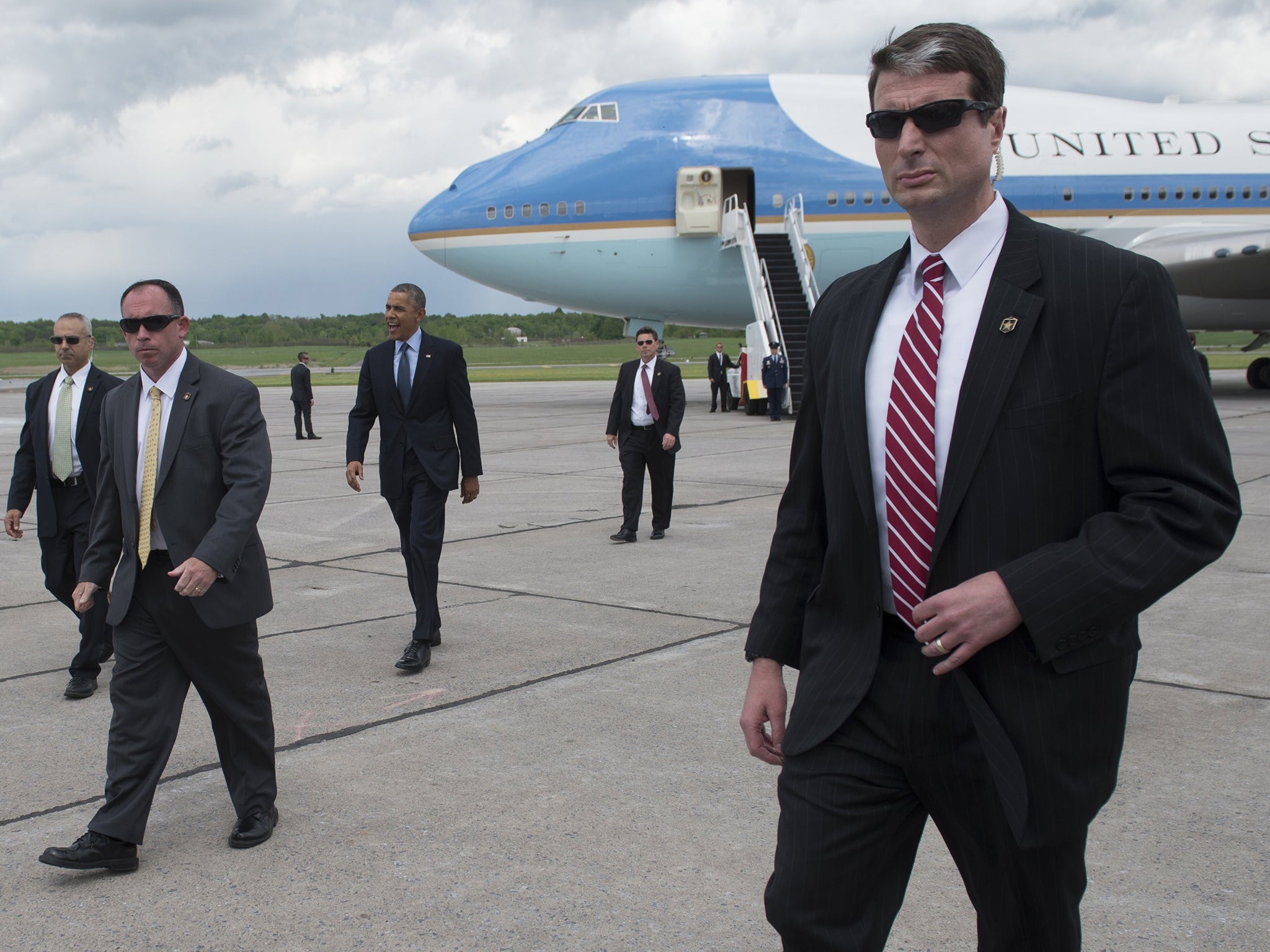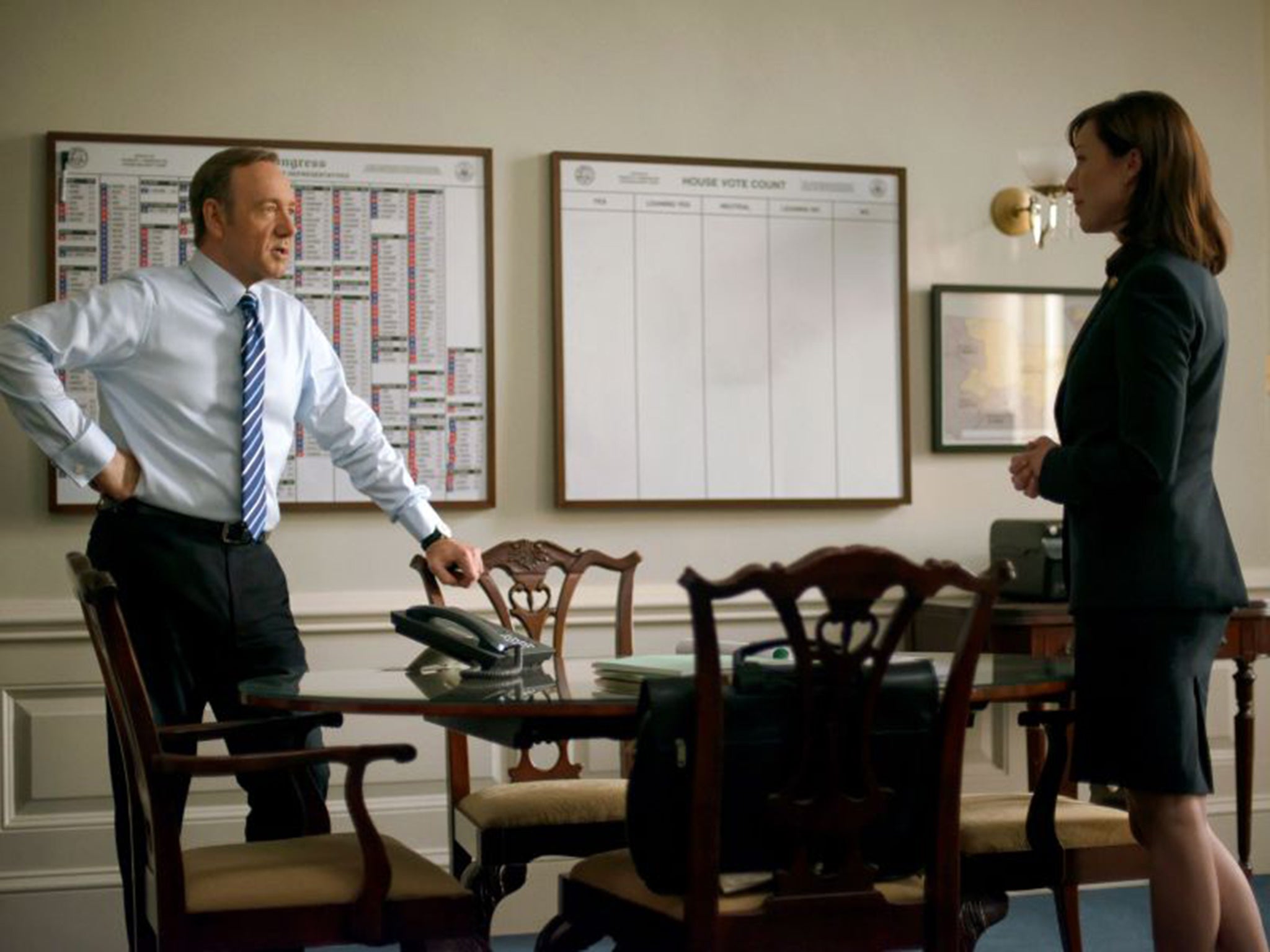The US Secret Service are now more House of Cards than real the heroes of yesteryear
They're under fire, and with a string of scandals and bungles in the past few years, it's not surprising


As a psychopathic would-be killer of the US president said to Secret Service agent Frank Horrigan: “You have such a strange job; I can’t decide if it’s heroic or absurd.” Those words, of course, are fictional, drawn from Wolfgang Petersen’s terrific 1993 thriller In the Line of Fire, featuring Clint Eastwood (who else?) as the ageing, guilt-torn Horrigan, the last agent still in service from the detail that failed to prevent John Kennedy’s assassination 30 years before.
But right now most Americans are asking themselves an identical question about the real Secret Service. Once its agents were heroes. Irritating they might be, with those give-away earpieces and that habit of talking into their wristwatches. But these were the guys who would take a bullet for the president – no idle risk in a country where in the past 150 years four presidents have been killed, and a dozen other assassination attempts have come close. Of late, however, the heroes have turned into a national joke (if joke is the right word when the stakes are so high).
In the film Horrigan gets his man, and the president is saved. Today, one wouldn’t be so sure. “Scandal hits the Secret Service”, blare the headlines. The reader’s only question is, which scandal? The one that started it all, back in 2009, when a couple of C-list socialites managed to gatecrash a state dinner at the White House?
Or the one in 2012, when a dozen agents brought prostitutes back to their hotel rooms in Cartagena, Colombia, in the middle of a summit attended by President Obama? Or when an agent passed out drunk in an Amsterdam hotel corridor when he was supposed to be doing advance work for an Obama visit?
Or the one in Atlanta last September, when a man carrying a gun managed to get into a lift with the President – or the scariest of all, perhaps, a few days later when an Iraq war veteran scaled the 7ft 6in fence at the White House, and made it across the lawn, in broad daylight, deep into the presidential residence? So much for protection at what is one of most closely guarded buildings on earth.
And now there’s yet another scandal. On the night of 4 March, a couple of agents – one of them the second-ranking member of Obama’s personal security detail – crashed a car into a security barrier outside the White House after an evening of drinking. According to The Washington Post, the incident may have interfered with the investigation of a suspected bomb (in the event the package on the pavement contained merely a book). Officers on the scene wanted to give the pair a breathalyser test – but were apparently overruled by a more senior Secret Service official. So much for In the Line of Fire heroics. This is House of Cards stuff.
So what’s gone wrong? Part of the explanation lies in America’s security-obsessed mindset after 9/11. The 2001 attacks prompted President Bush to order, reasonably enough, that protection be extended to key officials and close family members who previously had no detail. This placed extra pressure on Secret Service resources, even before the budget squeezes of the past few years. Making matters worse, the agency was losing some of its best and most experienced operatives under an early retirement scheme.

Another reason is the bureaucratic overhaul that followed 9/11, leading to the creation of the Department of Homeland Security. Before that, the Secret Service had been a jewel in the otherwise unglamorous crown of the US Treasury. From 2003, though, it was subsumed into the DHS, to become one small cog in the third largest and arguably most unwieldly agency of US government. Not exactly a step to bolster the service’s amour propre.
But the worst is surely of the Secret Service’s own making. Morale may have taken a hit these past few years, but even before that it was suffering from a culture of cronyism and a lack of accountability, as well as poor leadership that all too easily acquiesced in the sort of cover-up evident outside the White House just a few days ago.
Last September’s fence-jumping episode forced the resignation of the service’s director, Julia Pierson, and several other top officials, while an independent panel up set to examine the agency’s troubles concluded that an outsider should be brought in to clean house. Instead, last month Obama went with Joseph Clancy, a 27-year service veteran who had been in charge of the presidential security detail during his first term. These are early days for Clancy, but Obama may already be regretting his choice.
Then again, the Secret Service may never have quite measured up to the myth. True, since 1963 it boasts a zero-fail record (if, that is, you omit the almost successful assassination attempt on Ronald Reagan in 1981, when the armed John Hinckley Jr was allowed to stand 15ft from the president). But blemishes go back to its very beginnings.
The agency was created in 1865, at the time of the first presidential assassination of Abraham Lincoln, whose designated police guard was drinking in a saloon next door to Ford’s Theatre in Washington as John Wilkes Booth prepared to strike. Amazingly, the guard kept his job and was reassigned to protect Lincoln’s widow, Mary, even after she accused him of “murdering” her husband.
The initial mission of the agency, however, was not to prevent a repeat of that tragedy, but to tackle the currency counterfeiting rife after the Civil War – hence its attachment to the Treasury. Only in 1901 were the protection duties of the Secret Service formalised, when a third president, William McKinley, was fatally wounded by the anarchist Leon Czolgosz.
In the fictional universe, such dramas mostly have a happy ending. By thwarting the assassin, Frank Horrigan finds atonement for his failure to take the bullet that killed JFK. It may not be so easy for the real US Secret Service.
Join our commenting forum
Join thought-provoking conversations, follow other Independent readers and see their replies
Comments